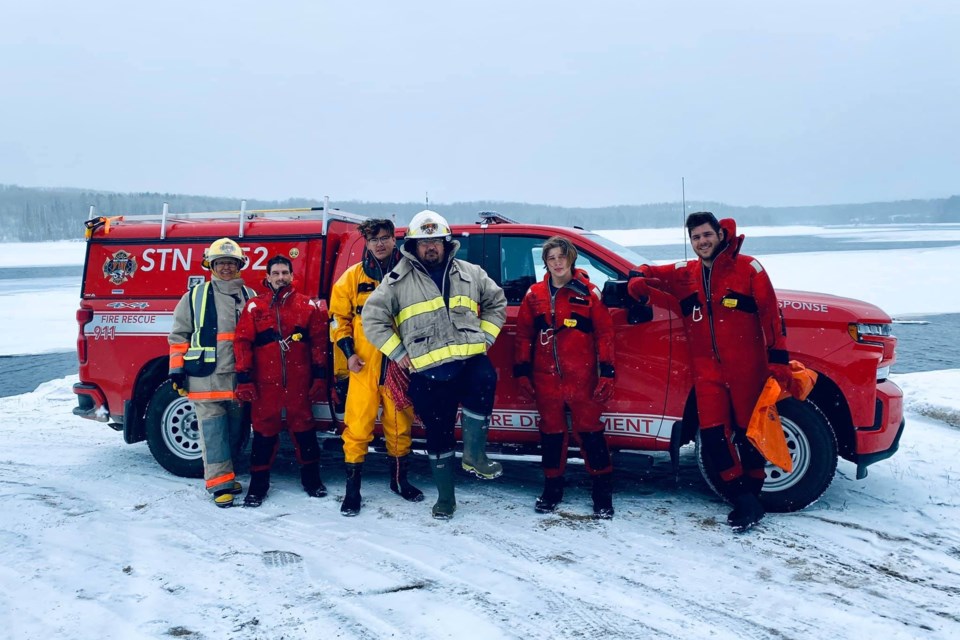In order to follow the provincial COVID-19 guidelines and keep physical distancing, the Mattagami First Nation Fire Department had to make some changes to their ice water rescue training courses.
The size of the training groups and the timing for when each training would be completed had to be adjusted, said fire chief Wilbert Wesley. The fire department started conducting refresher courses for any interested firefighters earlier this week.
“The training is a must and a necessity even though we’re going through COVID-19,” Wesley said. “But you can still do this training and do it safely.”
Wesley said some firefighters disagreed saying courses shouldn’t be held amid the pandemic. But, "What if we get a call and (firefighters) don’t remember what to do?" he asked.
"I’d rather we do something and practice safety measures to keep us even more diligent as opposed to walking to something blind without any answers.”
Typically, the training takes place during an ice breakup season and lasts for two days. The firefighters learn the theory in one day and spend the second day in the water rigging and performing different types of rescue scenarios and techniques.
But this season, the firefighters were divided into small groups of no more than five people.
“A lot of the current firefighters taking this course have already gotten the theory and they know the techniques,” Wesley said. “They just refresh themselves by one day by the river and practicing.”
Wesley conducted the first course together with Devin Naveau and the fire department’s two newest firefighters Seth Boucher and Troy Turcotte.
The second set of training was conducted by assistant fire chief Curtis Fowler with a senior captain Channing Graham, firefighters Brent Boissoneau, Thomas Mathieu, Daryl St. Pierre and rigger Betty Naveau.
The third group, comprised of Michael Gregoire, Janelle Golinowski, Veronica Punt, Gisele Brown and rigger Amanda Ryan, trained on Wednesday. Junior captain Tim Harvey led the session.
“We want to make sure our trainings are not just fun but educational,” Wesley explained.
“You want to give (firefighters) proper weather because they’re learning. There will be time enough to do rescues in sloppy weather. But for training purposes, we’re trying to look for decent weather for them to learn.”
The ongoing pandemic has affected more than the ice water rescue course. A lot of the COVID-19 information and material now have to be incorporated into the fire department’s operations and training, Wesley said.
“We can’t give CPR because we pulled somebody out of the water. We have to think of the COVID aspect now,” Wesley said in a phone interview. “Same with highway extrication. We have specialized equipment and suits that we need to wear in regard to the individual we’re trying to help on the highway.”
“Before COVID started, it was rush and help and give what (people) need. Now, we have to take a step back and say, ‘What safety precautions do my guys need to take not to contract COVID in case people we’re trying to help don’t know they’re carrying it.'”



